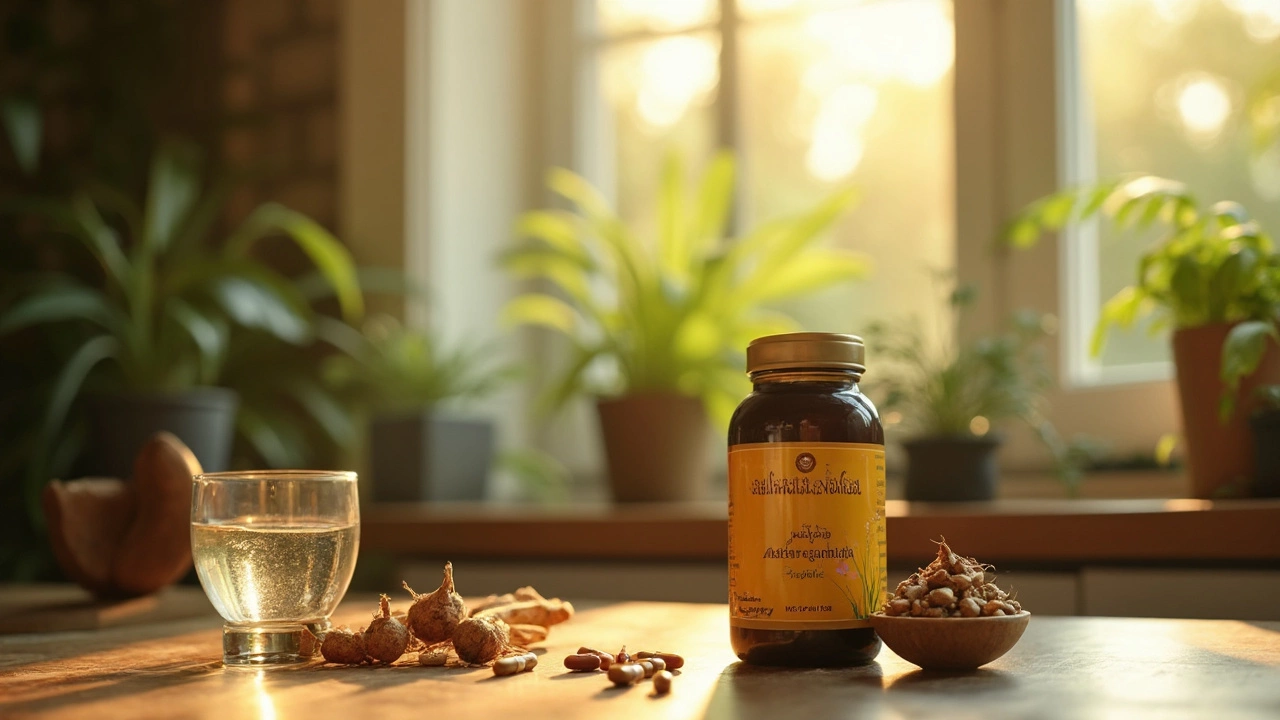Ashwagandha: What It Is and Why It Matters
Ever heard of ashwagandha and wondered if it’s worth adding to your routine? It’s an ancient Indian herb, also called Indian ginseng, that’s been used for centuries to calm stress, boost stamina, and support overall health. The root contains active compounds called withanolides, which are believed to influence hormone balance and inflammation. Because it’s popular in both Ayurveda and modern wellness circles, you’ll see it in teas, capsules, and powders across Indian stores and online shops.
Top Health Benefits of Ashwagandha
First up, stress relief. Studies from Indian universities show that a daily dose of 300‑500 mg can lower cortisol, the body’s stress hormone, making you feel less anxious and more focused. Second, energy and strength. Athletes often report better endurance and quicker recovery when they take ashwagandha before workouts. Third, sleep quality. The herb’s calming effect can help you fall asleep faster and enjoy deeper rest, which many users credit to its impact on the nervous system.
Beyond the big three, ashwagandha may help control blood sugar, support thyroid function, and improve male fertility. While the research is still evolving, the existing data suggest modest but real benefits when taken consistently. Remember, the herb works best as part of a balanced diet and lifestyle—not as a magic pill.
How to Choose a Safe Ashwagandha Supplement
Not all ashwagandha products are created equal. Look for brands that list the exact extract type—preferably “standardized withanolide content” of at least 5 % for reliable potency. Check the label for third‑party testing; seals from labs like NSF or WHO-GMP give you confidence that the product is free from heavy metals and pesticides.
Read the ingredient list carefully. Pure ashwagandha should be the main component, without unnecessary fillers, artificial colors, or excessive sugars. If you’re buying a capsule, the recommended dosage is usually 1‑2 capsules per day, but always follow the manufacturer’s instructions and talk to a doctor if you have existing health conditions.
Pricing can be a trap. Extremely cheap ashwagandha often means low‑quality raw material or poor processing. A mid‑range price of ₹800‑₹1500 per 60‑capsule bottle is typical for reputable Indian brands. Buying in bulk can save money, but only if you’re sure the product stays fresh—look for a clear expiration date.
Finally, consider how you’ll use it. Powders mix well into smoothies, golden milk, or warm water, while capsules are convenient for travel. Choose the format that fits your daily routine, and you’re more likely to stick with it.
At Sunny Health & Wellness Indian Hub, we regularly review herbal supplements, including ashwagandha, to help you make informed choices. Check our latest guides for deeper dives into dosage, safety, and product comparisons. With the right information, you can enjoy the calm, strength, and better sleep that ashwagandha promises—without guessing or wasting money.







